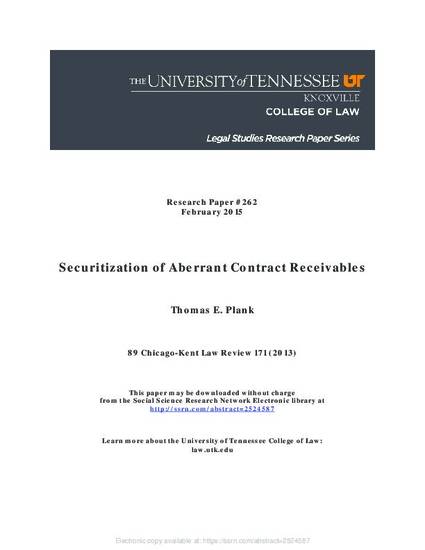
Originators of traditional receivables, such as automobile loans, use securitization and structured finance debt transactions to obtain financing at lower net costs than traditional secured financing. The typical securitization or structured finance debt transaction combines (i) a sale of receivables to a separate, bankruptcy remote, special purpose legal entity (an “SPE”) and (ii) a loan to the SPE secured by the receivables. This combination produces lower net financing costs because the SPE’s lender can obtain repayment of its loan from the receivables while avoiding the costs that the Bankruptcy Code imposes on direct secured lenders to originators that could become debtors in bankruptcy for reasons unrelated to the receivables. The viability of this financing technique, however, depends upon receivables that produce reliable cash flows with minimal reliance on an operating company. This article analyzes the reasons for the net costs savings of securitization and structured finance debt transactions and the structural features necessary to achieve those savings. This analysis provides a framework for assessing the feasibility of a securitization or structured finance debt transaction for any type of aberrant contract receivable.
